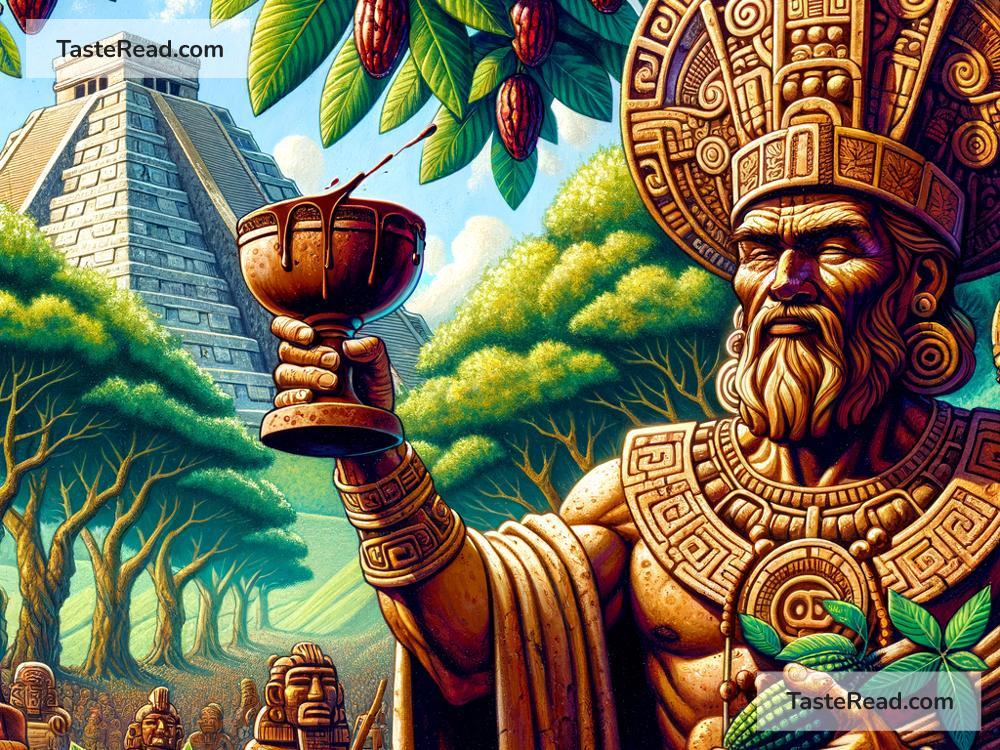The Mythical Origins of Chocolate
Chocolate is one of the most beloved treats in the world, enjoyed in countless forms—bars, drinks, cakes, or even as a flavor in ice cream. But did you know that chocolate has a fascinating history steeped in myths and legends? The story of how chocolate came to be is not just about recipes and cooking; it’s also about magical tales and divine connections. Let’s explore the mythical origins of chocolate in simple and easy-to-understand language.
Ancient Civilizations and the Birth of Chocolate
Long before chocolate became the sweet treat we know today, it was valued by ancient civilizations like the Maya, Aztec, and Olmec for its profound significance. These cultures saw cacao—the plant from which chocolate comes—as sacred. They believed it was a gift from the gods and treated it as a precious treasure.
The cacao tree grows in the tropical regions of Central and South America. Its seeds, called cacao beans, were crushed to make a bitter drink that had an earthy, almost magical quality. Unlike the sugary chocolates we eat today, ancient chocolate wasn’t sweet. It was often mixed with spices like chili and used in rituals. For these cultures, chocolate was more than food; it was a spiritual experience.
The Mayan Myth of Chocolate
The Maya were one of the earliest groups to cultivate cacao trees, and their myths reflect how much they loved and respected chocolate. According to Mayan legend, cacao was a gift from the gods. The Mayan god Kukulkan, the feathered serpent, is often credited with bringing cacao from the heavens to the earth. The gods wanted humans to have it because it was nourishing and connected to divine wisdom.
Cacao was considered sacred and was often used in ceremonies, including weddings and religious rituals. The Mayans prepared cacao as a frothy drink, sometimes sweetened with honey or flavored with chili peppers. They believed this beverage gave them strength and allowed them to connect with the gods.
The Aztec Myth of Quetzalcoatl and Chocolate
The Aztecs, who lived in what is now Mexico, also had a deep admiration for cacao. For them, cacao was a divine gift brought to humanity by one of their most important gods, Quetzalcoatl. Like the Mayan Kukulkan, Quetzalcoatl is often depicted as a feathered serpent.
Legend has it that Quetzalcoatl discovered the cacao tree and brought it to the Aztec people, teaching them how to cultivate the plant and make chocolate from its beans. Quetzalcoatl shared this special gift as a way to help humans thrive, giving them strength and wisdom.
However, the story of chocolate takes a darker turn in Aztec mythology. Some versions of the legend say that other gods became angry with Quetzalcoatl for giving such a sacred gift to humans. They tricked him, causing him to leave the land in sadness. The Aztecs believed that cacao was so precious it was reserved for royalty, warriors, and priests. Ordinary people rarely had the privilege of enjoying chocolate.
For the Aztecs, chocolate was not just food—it was power. Cacao beans were used as currency, and chocolate drinks were consumed to honor the gods during ceremonies and celebrations.
Chocolate and Divine Connections
Across both Mayan and Aztec cultures, cacao was seen not just as a snack but as a bridge between humans and the divine. Drinking chocolate was thought to bring good health, vitality, and spiritual clarity. It was used in religious rituals and offered to gods as a sign of respect.
One of the most fascinating aspects of chocolate’s mythical origins is how it became associated with life and fertility. Cacao trees have colorful flowers and fruit, which ancient cultures linked to abundance and prosperity. As a result, chocolate became a symbol of more than just sweetness; it was seen as a sign of growth, connection, and balance in nature.
Chocolate’s Journey to Europe
When the Spanish conquistadors arrived in the Americas in the 16th century, they were introduced to cacao by the native peoples. At first, they found the bitter drink strange, but soon they realized its value. The Spaniards took cacao beans back to Europe, adding sugar and milk to create the sweeter forms of chocolate we enjoy today.
Though chocolate became a global treat, its mythical roots are still remembered in stories from ancient times. Even as chocolate evolved into candy bars and commercial products, its connection to nature, wisdom, and the gods remains an important part of its history.
Conclusion: Chocolate as a Magical Gift
Today, we associate chocolate with celebrations, comfort, and joy. But its mythical origins remind us that it was once seen as much more—a divine gift from magical beings, a source of strength, and a symbol of connection between humans and the heavens.
The next time you unwrap a chocolate bar or sip a hot cup of cocoa, take a moment to think about its incredible journey. From the sacred rituals of ancient civilizations to the delightful treat we enjoy today, chocolate truly has a magical story worth savoring.


